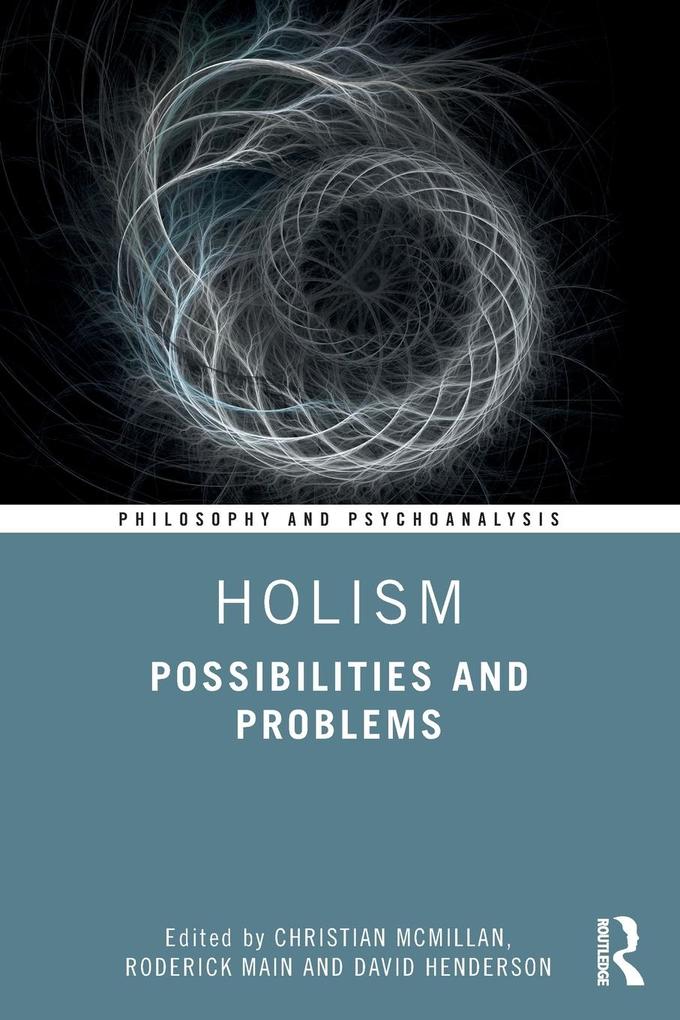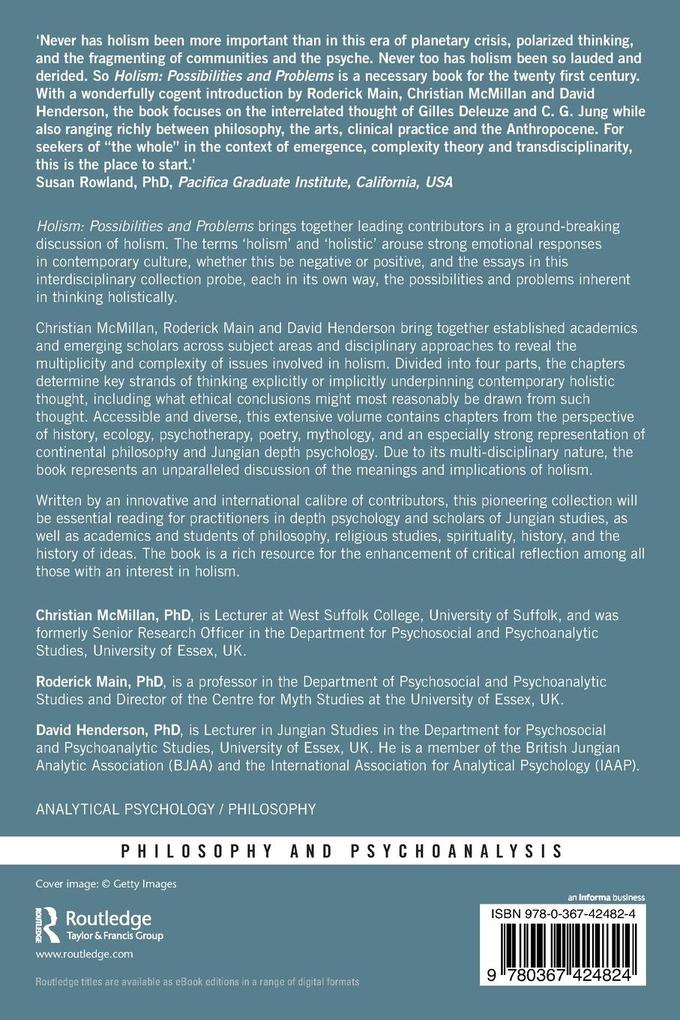Bücher versandkostenfrei*100 Tage RückgaberechtAbholung in der Wunschfiliale
10% Rabatt10 auf Toniebox 1, Figuren & Zubehör mit dem Gutscheincode: TONIE10
Jetzt einlösen
mehr erfahren
Zustellung: Di, 23.09. - Fr, 26.09.
Versand in 5 Tagen
VersandkostenfreiBestellen & in Filiale abholen:
The terms 'holism' and 'holistic' arouse strong emotional responses in contemporary culture, whether this be negative or positive, and the essays in this interdisciplinary collection probe, each in its own way, the possibilities and problems inherent in thinking holistically.
Inhaltsverzeichnis
Introduction: Roderick Main, Christian McMillan and David Henderson; Part 1: History and contexts; Chapter 1: How do we think in terms of wholes? Holistic voices and visions after World War II, Linda Sargent Wood; Chapter 2: Irreducible responsibility: applying holism to navigate the Anthropocene, Andrew Fellows; Chapter 3: Georg Ernst Stahl's holistic organism, Barbara Helen Miller; Part 2: Analytical Psychology; Chapter 4: From the split to wholeness: the 'coniunctio' in C. G. Jung's Red Book, Alessio de Fiori; Chapter 5: Science as a system: connections between Carl Gustav Jung's holistic thoughts about science and his Red Book experience, Armelle Line Peltier; Chapter 6: The holistic wish: migration of feeling, thought and experience, Phil Goss; Chapter 7: Holistic education: the Jungian dilemma, Robert Mitchell; Chapter 8: Simondon and Jung: re-thinking individuation, Mark Saban; Part 3: Philosophy; Chapter 9: A whole made of holes: interrogating holism via Jung and Schelling, Gordon Barentsen; Chapter 10: Jung, Spinoza, Deleuze: a move towards realism, Robert Langan; Chapter 11: Kant's influence on Jung's vitalism in the Zofingia Lectures, Christian McMillan; Chapter 12: An emergent, critical realist understanding of holism, Ian Hornsby; Chapter 13: Synchronicity: between wholes and alterity, Rico Snellee; Chapter 14: Why don't holisms describe the whole? The psyche as a case study, John Mackey; Part 4: Practice and the arts; Chapter 15: A synchronistic experience in Serbia, Richard Berengarten; Chapter 16: The concept of kami in Shint and holism: psychotherapy and Japanese literature, Megumi Yama; Chapter 17: The CORE Trust: the holistic approach to addiction, Jason Wright
Produktdetails
Erscheinungsdatum
18. Dezember 2019
Sprache
englisch
Seitenanzahl
214
Herausgegeben von
Christian McMillan, Roderick Main, David Henderson
Verlag/Hersteller
Produktart
kartoniert
Gewicht
333 g
Größe (L/B/H)
234/156/12 mm
ISBN
9780367424824
Entdecken Sie mehr
Bewertungen
0 Bewertungen
Es wurden noch keine Bewertungen abgegeben. Schreiben Sie die erste Bewertung zu "Holism" und helfen Sie damit anderen bei der Kaufentscheidung.










